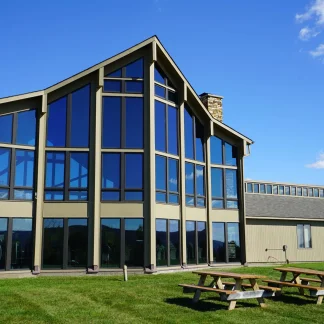Tully Hill Treatment & Recovery
Tully, New York, 5821 Route 80, 13159
Available Programs
- Adolescence program
- Adult program
- Program for men
- Program for women
- Total beds : 80
- Young adult program
Insurance and Financial
- Private insurance
- Self-pay options
- Financial aid
- Military insurance
- Monthly : $19,000
- Daily
- Per session
About this Facility
Tully Hill Treatment & Recovery is an accredited dual diagnosis substance use disorder rehab center nestled in Tully Valley, New York. The 33 acre drug rehab facility stands as a safe haven that provides a tranquil setting for addiction treatment.
Firmly rooted in the 12 Step philosophy, Tully Hill offers a serene atmosphere fashioned by the open, tranquil countryside and provides various levels of care including:
Tully Hill offers a medically monitored inpatient program, providing individuals with an environment that safely and effectively manages patients’ withdrawals from alcohol, benzodiazepines, opiates/opioids, and other intoxicating substances. The program includes comprehensive assessments, individual counseling, group therapy, family involvement, and evidence based treatments to address substance abuse issues effectively.
For individuals requiring less intensive care or transitioning from higher levels of care, Tully Hill offers outpatient services. These services allow individuals to continue their treatment while living at home and attending therapy sessions on a scheduled basis. Outpatient services may include individual counseling, group therapy, family involvement, and educational programs.
Tully Hill’s intensive outpatient program (IOP) is an intensive treatment option for individuals who don’t require inpatient care or have completed a higher level of care. The IOP allows individuals to attend therapy sessions and engage in therapeutic activities while maintaining their daily commitments.
Specialized programs are also provided to address specific needs faced by specific populations. These may include programs for individuals with co-occurring mental health disorders, programs for business and uniform professionals, and programs tailored toward families.
Contact us for more information: (315) 696-6114

Contact Tully Hill Treatment & Recovery
Connect with Tully Hill Treatment & Recovery by calling their admissions team directly.
(315) 696-6114 Website Get Directions